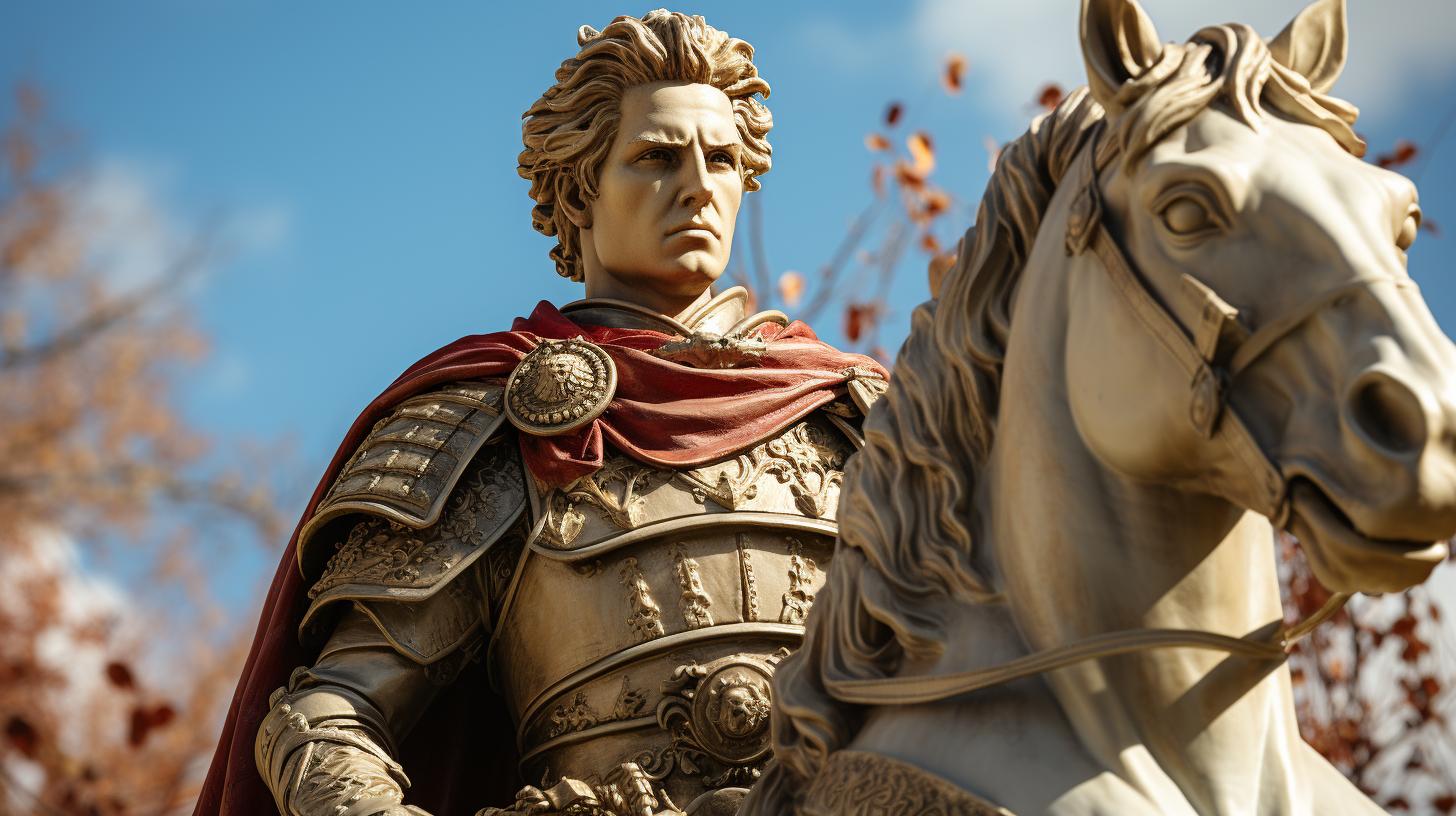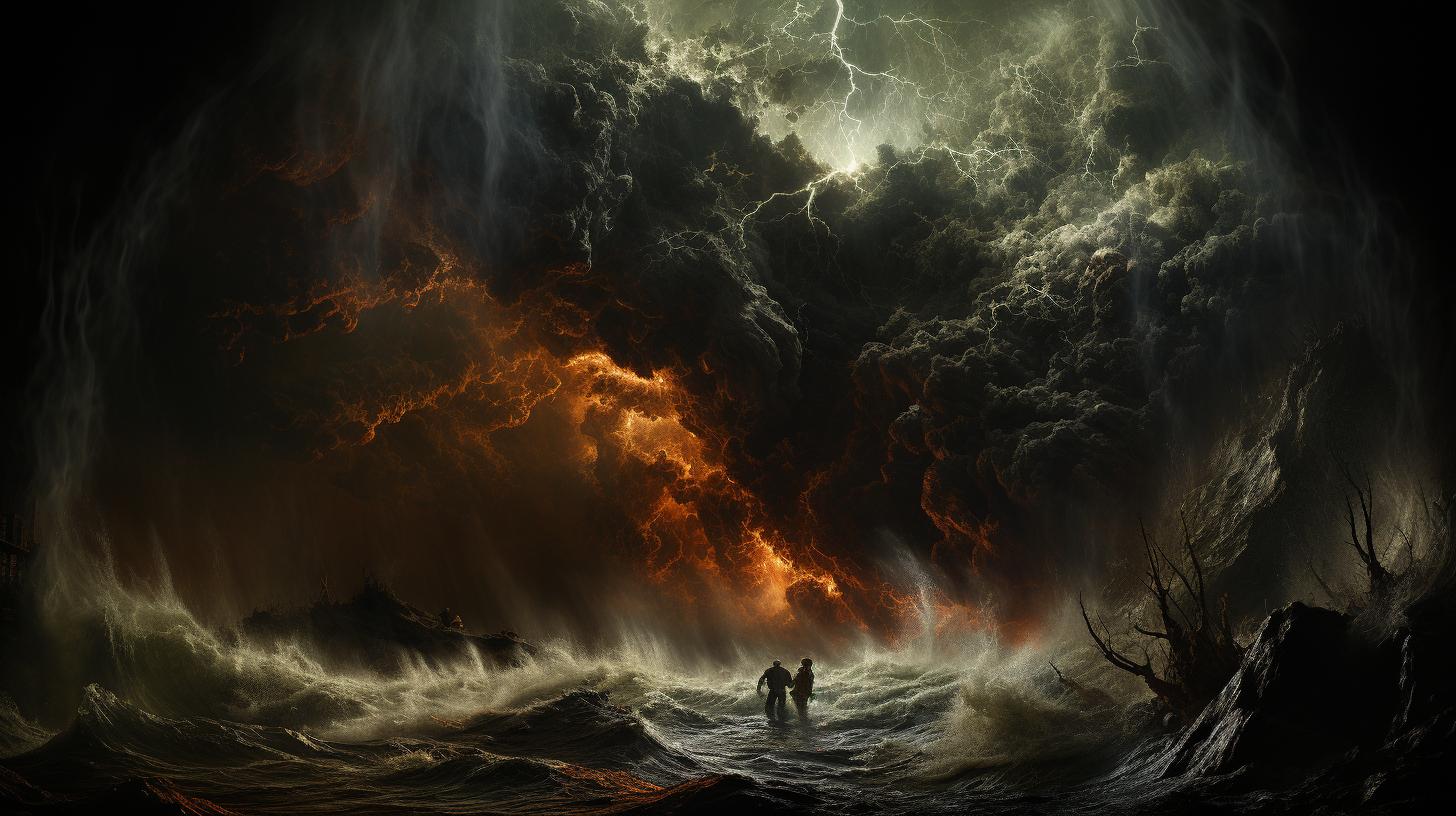The Myth of King Aegeus: Unraveling the Tragic Story in Greek Mythology

The myth of King Aegeus is a significant tale in Greek mythology, focusing on the father of Athens and his tragic fate. It involves conflicts with Crete, the heroic actions of Aegeus’ son, Theseus, and a devastating misunderstanding that led to Aegeus’ demise at Cape Sounion.
This event also resulted in the naming of the Aegean Sea in his honor. Cape Sounion, with its breathtaking views and the remains of the ancient Temple of Poseidon, holds mythological and archaeological importance.
The Aegean Sea itself has played a crucial role in the early civilizations and cultural heritage of Greece.
The Myth of King Aegeus and its Significance in Greek Mythology
The myth of King Aegeus holds great significance in Greek mythology, intertwining themes of power, sacrifice, and tragic misunderstandings. This captivating tale explores the life of Aegeus, the father and king of Athens, and his fateful encounters with the island of Crete and his heroic son, Theseus.
Aegeus: The Father and King of Athens
Aegeus, a prominent figure in Greek mythology, reigned as the king of Athens.
As the ruler of this influential city-state, Aegeus faced various challenges and conflicts that shaped his legacy. His actions and decisions would ultimately have a profound impact on the mythological landscape.
The Conflict with Crete and the Tribute
One of Aegeus’ significant challenges arose from the island of Crete. In order to appease the power of Crete, Aegeus was required to send tributes to be sacrificed to the fearsome Minotaur – a creature of half-human and half-bull form.
This ongoing conflict and the burden it placed on Athens would play a crucial role in the subsequent events.
Theseus: The Heroic Son of Aegeus
Theseus, Aegeus’ courageous son, emerges as a central figure in the myth. With a strong sense of duty and determination, Theseus volunteered to be a tribute sent to Crete, aiming to put an end to the horrors inflicted by the Minotaur. His bravery and willingness to sacrifice himself for his people’s safety highlight his heroic nature.
Theseus’ journey and actions would have a profound impact on Aegeus, ultimately leading to a devastating turn of events. The interplay between Aegeus, Theseus, and the larger mythological framework gives the story of King Aegeus its enduring significance in Greek mythology.
The Tragic Misunderstanding and Aegeus’ fate
In the myth of King Aegeus, a heartbreaking miscommunication leads to his tragic fate. Consumed by despair and believing his son, Theseus, to be dead, Aegeus makes a fateful decision at Cape Sounion.
This event not only marks the end of Aegeus’ life but also has a profound impact on the naming of the Aegean Sea.
Aegeus’ Desperation and Leap at Cape Sounion
Overwhelmed by grief, Aegeus reaches Cape Sounion, a cliff that overlooks the awe-inspiring expanse of the Aegean Sea. It is here that Aegeus, driven by despair, feels compelled to end his own life.
With a heavy heart, he leaps into the churning waters below, embracing the sea that would forever bear his name. This tragic act of desperation marks a turning point in the myth and lingers as a poignant symbol of Aegeus’ sorrow.
The Naming of the Aegean Sea
The Aegean Sea derives its name from the sorrowful leap of Aegeus at Cape Sounion. This vast body of water, once known simply as part of the Mediterranean, becomes forever intertwined with Aegeus’ tragic fate.
The name “Aegean” serves as a reminder of the deep emotional connection between the mythological figure and the sea that witnessed his desperate act. It stands as a testament to the enduring power of myth and its ability to shape our understanding of the world around us.
Cape Sounion: Mythological Importance and Archaeological Significance
Cape Sounion holds a special place in Greek mythology and boasts significant archaeological remains, offering insights into ancient civilizations and their beliefs.
The Impressive Cliff and Panoramic Views of the Aegean Sea
Perched on an impressive cliff, Cape Sounion provides breathtaking panoramic views of the majestic Aegean Sea.
The sheer grandeur of the rugged coastline combined with the endless azure expanse creates a mesmerizing sight that leaves visitors in awe.
The Ancient Temple of Poseidon and Its Ruins
At Cape Sounion, visitors will discover the remains of the ancient Temple of Poseidon, a testament to the rich mythological history of the region.
Built to honor the powerful god of the sea, the temple showcased stunning Doric architecture and served as a significant religious site in ancient times.
The ruins that remain today offer a glimpse into the past, with some of the temple’s columns still standing tall.
Though the original temple was destroyed during the second Greco-Persian War in 480 BCE, a later temple was erected in its place and stands as a testament to the enduring legacy of ancient Greek civilization.
- 5th century BCE: Construction of the original Temple of Poseidon
- 480 BCE: Destruction of the temple during the second Greco-Persian War
- Subsequent construction of a later temple on the same site
- Surviving columns showcasing the architectural prowess of ancient Greece
The Temple of Poseidon at Cape Sounion not only showcases the remarkable skills of ancient Greek architects but also provides a connection to the mythological tales that shaped the culture and beliefs of the time.
The Historical and Cultural Significance of the Aegean Sea
The Aegean Sea holds immense historical and cultural importance, shaped by the influence of early civilizations, its connection to great Greek cities and islands, and its impact on arts, culture, and mythological beliefs.
Early Civilizations and their Contributions
The Aegean Sea has long been a hub for significant civilizations, including the Minoans, Mycenaeans, and ancient Greeks. These civilizations thrived in coastal areas, harnessing the sea’s resources for trade, exploration, and the development of advanced societies.
They left a lasting legacy of art, architecture, literature, and political systems that continue to inspire and fascinate us today.
The Connection to Great Greek Cities and Islands
The Aegean Sea played a crucial role in connecting prominent Greek cities and islands, fostering trade, cultural exchange, and warfare. Cities such as Athens, Corinth, and Rhodes emerged as influential maritime powers, leveraging their proximity to the sea for economic prosperity and political dominance.
The sea also facilitated the establishment of thriving island civilizations like Crete, Santorini, and Mykonos, each with their unique cultural contributions.
The Legacy of the Aegean Sea in Arts, Culture, and Mythological Beliefs
The Aegean Sea’s shimmering waters, picturesque landscapes, and mythical associations have inspired countless works of art, literature, and music.
Artists and writers, from ancient poets like Homer to contemporary painters, have drawn inspiration from its beauty and the captivating stories woven around it. The sea serves as a backdrop for mythical tales, such as the adventures of Odysseus and the exploits of heroes like Theseus, contributing to the rich tapestry of Greek mythology.
- The Aegean Sea’s stunning beauty continues to attract artists, writers, and travelers, who find solace and inspiration on its shores.
- Its crystal-clear waters have influenced the development of marine-themed arts, including seascapes, landscape painting, and maritime literature.
- Traditional Greek music often features melodies and rhythms influenced by the ebb and flow of the Aegean Sea.
- Local festivals and cultural events celebrate the region’s seafaring traditions, maritime history, and mythical tales associated with the sea.
In conclusion, the Aegean Sea’s historical and cultural significance lies in its role as a cradle of early civilizations, its connections to prominent Greek cities and islands, and its profound impact on arts, culture, and mythological beliefs.
Today, as in the past, the Aegean Sea continues to captivate our imagination and leave an indelible mark on the cultural heritage of Greece and beyond.
.




















